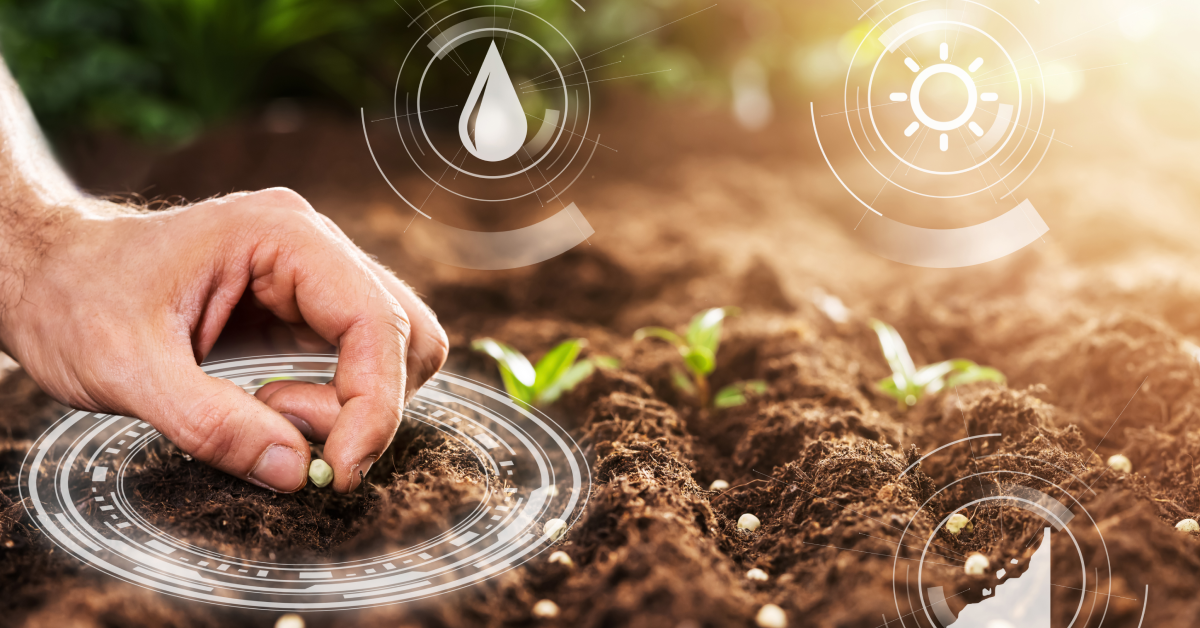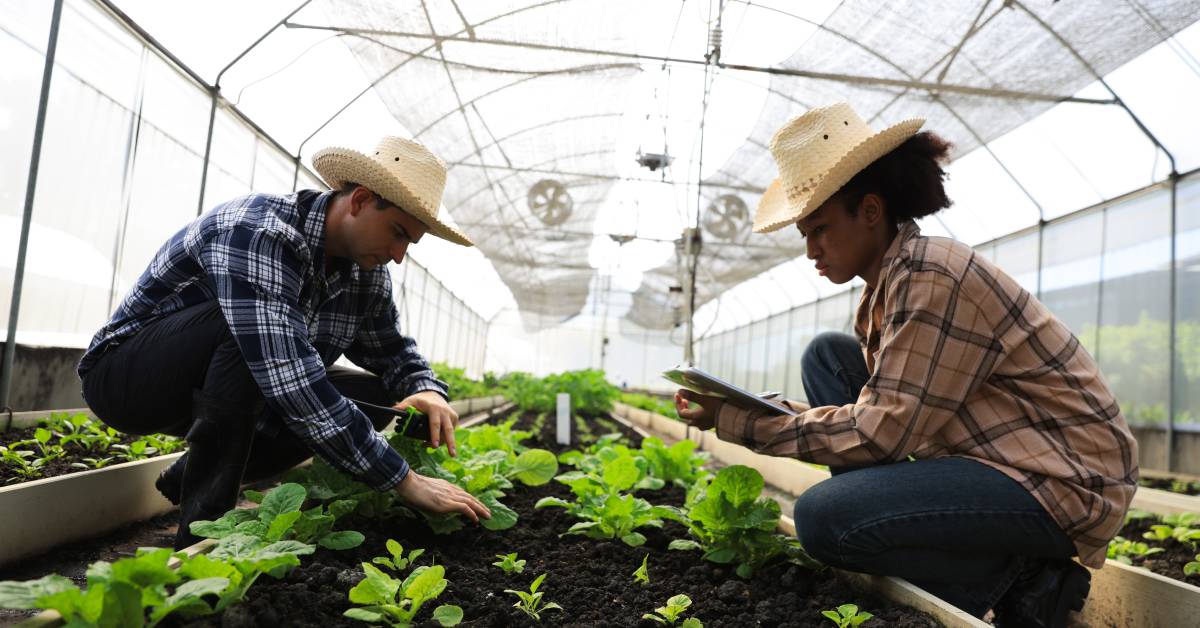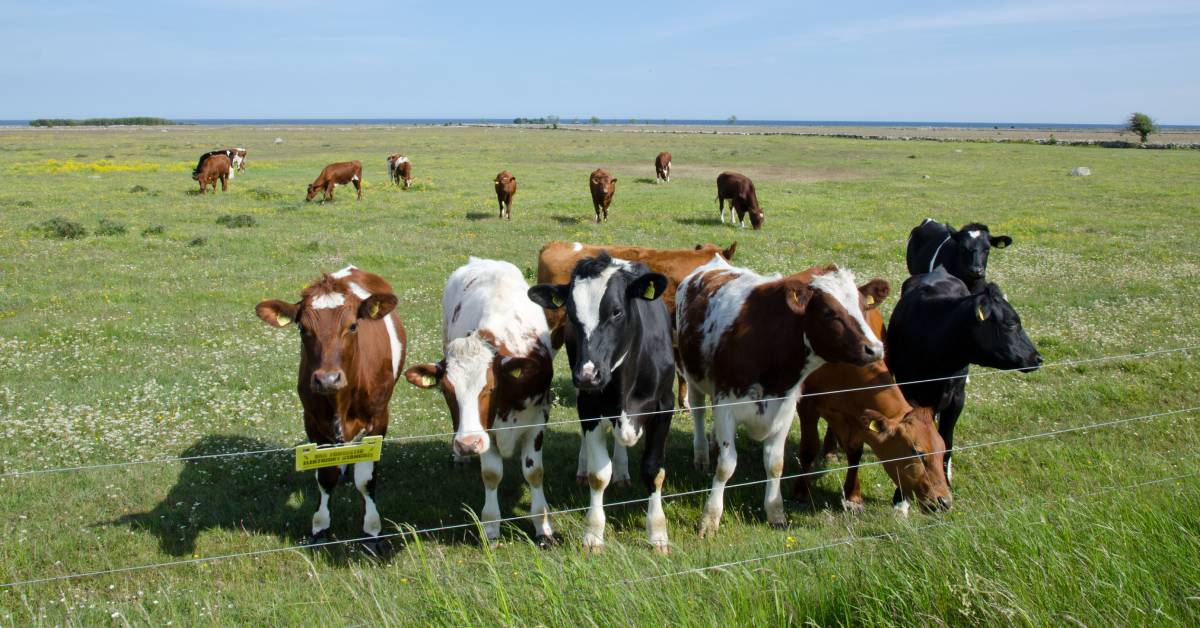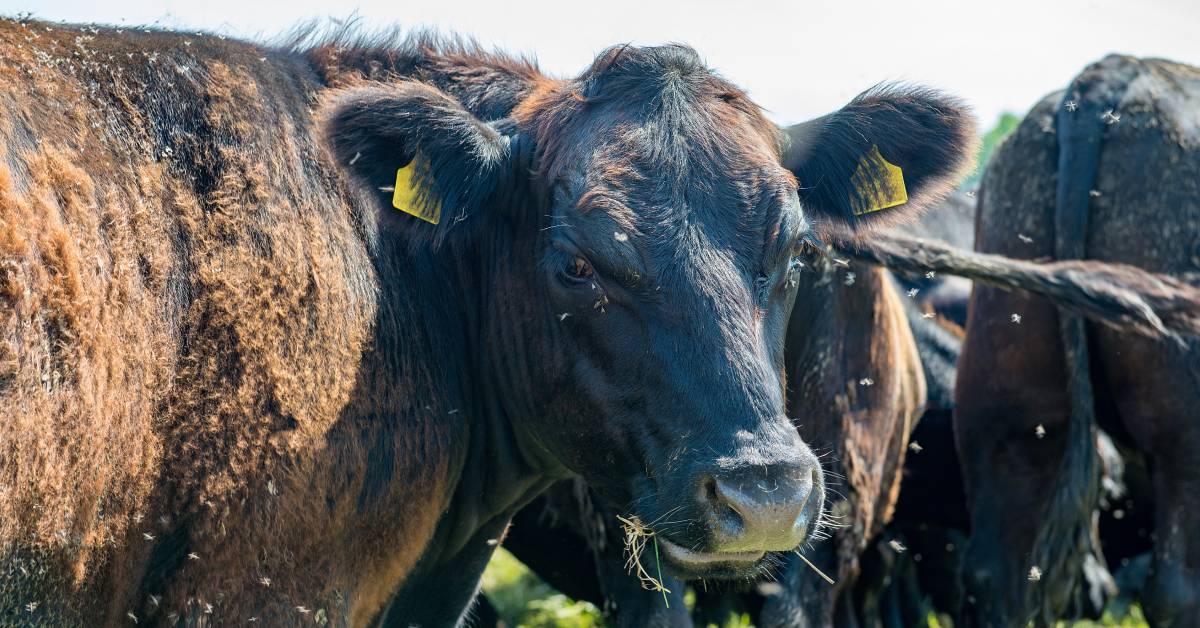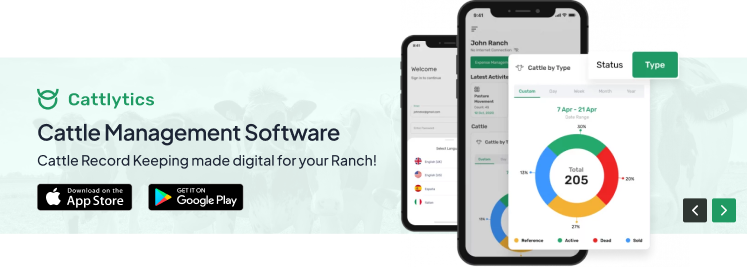Seed farming technology and modern farming techniques that comply with environmental regulations are still the key to meeting the needs of that food. However, conserving the natural world is no less complicated.
Seed farming is the position that makes plants grow because the seeds are cultivated and harvested for planting. Seed-producing processes have advanced far more than one would think during history, and they are the consequence of technological advancements and research findings.
The oldest kind of farming has acquired a set of innovative methods, from the processing of heritage seeds to the new technologies of biotechnology and genetic engineering.
These achievements are poised to become varieties of crops equipped to handle environmental stresses daily with nutritional value and higher yield expectations. There will be an instinct for the future of agriculture to grow sustainably.
Sustainable agriculture is vital to the modern era in a global context. It is a climate crisis, a matter of resource depletion, and a controversy about food insecurity. Sustainable farming has the potential to address issues about managing environmental resources and practices that are sustainable economically and socially.
Its primary task is to serve the present demands without undermining the next generation’s ability to meet their needs. This underscores our collective responsibility and commitment to the futurists of agriculture as planets.
The Role of Agribusinesses in Seed Farming
Agribusinesses’ involvement in seed farming is instrumental in ensuring a resilient and efficient agricultural system that meets the global demand for food, feed, and fiber while safeguarding natural resources for future generations.
Overview of Agribusiness Within the Seed Industry
Agribusiness carries out seed production, distribution, and promotion work in the seed sector. It involves different activities such as variety breeding, cultivation, processing, packaging, and trade.
Agribusinesses use scientific research, technology, and market knowledge to craft superior seeds to the degree that farmers and consumers wish. They sell seeds and also provide essential support services like agronomic advice, training, and technical assistance to farmers so that they can optimize seed use and increase their crop yields.
Key Players and Innovators in the Seed Business Sector
In farming seed, key players and innovators are driving advancements and shaping the future of agriculture.
From global leaders in seed farming technology to pioneering startups, these entities play a crucial role in developing innovative solutions to address agricultural challenges and meet the growing demand for high-quality seeds.
Global Leaders in Seed Farming Technology
Longstanding international companies, such as Monsanto (which was purchased by Bayer), Syngenta, and Corteva Agriscience (which became separated from DuPont), are the leaders of seed farming technology. These firms spend considerably on research and development to produce seeds with enhanced genetics that are highly productive and capable of negating the resistance against disease dehydration.
Start-ups and Their Role in Innovating Seed Farming
Thanks to their creative methods and technologies, from seed to large agricultural companies, start-ups and smaller companies are becoming pioneers in diversifying seed farming. Cereal companies are aligning to produce varieties of seed strings containing particular climatic formulations and market prices.
These companies tend to implement new and advanced technologies, such as precision agriculture, genetic engineering, and artificial intelligence, to improve seed quality and crop performance and yield better sustainability results. Additionally, leveraging data engineering services can further optimize these technological implementations, ensuring more precise and efficient outcomes in modern seed farming.
How Agribusinesses are Shaping Sustainable Agricultural Practices
Farming seed businesses are innovators in efficient and healthy agricultural systems by implementing environmentally friendly farming practices, utilizing research for more resilient crop varieties, and sponsoring projects concerned with environmental conservation.
By tapping into partnerships with farmers, governments, and environmental groups, agribusinesses work on developing farming seed practices that result in minimal ecological impact. They achieve conservation of natural resources and help stabilize agriculture overall.
Advancements in Seed Farming Technology
Recently, seed farming technology has evolved like never before, prompting profound changes in agricultural practices and supporting sustainable and ecological practices. These technological innovations have enabled continuous increases in crop productivity and resilience, raised the utilization efficiency of these resources, and promoted environmentally sustainable agriculture.
Genetic Engineering and Seed Development
Today’s seed breeding is genetically modified because it creates the crops we need that can withstand droughts and pests and have other nutritional qualities.
GMOs, an abbreviation for genetically modified organisms, have significantly impacted agriculture and aided in tackling challenges like food insecurity and climate change. They have been instrumental in improving crop yields, lowering pesticide usage, and managing environmental consequences.
Though the deployment of GMOs on a large scale is the source of some safety and ethical questions on account of the potential impacts on human health and biodiversity, it could be the solution to address the food crisis.
Smart Farming Technologies
Precision agriculture has radically changed how seeds are planted, using high-tech tools such as GPS, Unmanned Aerial Vehicles (UAVs), and sensors, among others, to manage farm resources much more efficiently.
Such tools permit farmers to precisely track the nature of the soil, crop health, and moisture; hence, resource utilization is efficient, and higher yields are attained. Also, AI and machine learning algorithms are now more commonly used in seed selection and breeding processes, which usually take a long time. This leads to crop varieties that are both efficient and resistant, developing faster than ever.
Luckily, Folio3 AgTech proudly stands at the intersection of seed farming technology and agribusiness. It equips the agricultural industry with the latest innovations to ensure greater efficiency and sustainability.
By applying cutting-edge technologies like GPS satellites, UAVs, sensors, and AI, Folio3 Agtech enables farmers to introduce high-precision agriculture that has redefined seed farming and crop management. Similar to how innovations like advanced windshield wiper blades have enhanced driving safety and visibility, these agricultural technologies enhance precision and outcomes in farming.
The Folio3 AgTech’s seed management software offers farmers a seamless way to integrate futuristic tools into their operations, precisely monitoring soil conditions, crop health, and moisture levels.
Using AI and machine learning algorithms to optimize seed selection and breeding, significant time reductions are achieved in developing resistant and efficient seeds.
Through its knowledge of innovative farming seed technologies, Folio3 AgTech gives farmers tools to make data-informed choices, maximize resource utilization, and attain higher yield sustainability.
With an innovation and technology focus, Folio3 AgTech will be the upshot to continue the evolution of agriculture seed farming practices, creating a brighter, more sustainable future for agriculture.
Seed Biotechnology as a Tool
Biotechnology has an environmentally friendly seed treatment method involving the application of biofertilizers and biological insect control methods.
Biofertilizers exploit positive microorganisms to aid soil enrichment and nutrition uptake, minimizing dependence on chemical fertilizers and lessening environmental pollution.
The same can be noted about biological control techniques that use natural enemies, such as predatory insects and parasitic nematodes, to control pesticide populations and ecosystem balance.
These biotechnological inventions benefit sustainable agriculture by guarding soil health, biodiversity, and ecosystem stability.
Modern Farming Methods Supporting Sustainable Seed Farming
Conservation Agriculture
Conservation agriculture techniques include no-till soil cultivation, continual plant cover, and crop rotation. These techniques improve soil quality and biodiversity, enabling an environment that suits seed and plant growth quality.
Conservation agriculture techniques of reducing soil erosion, conserving moisture, and improving the soil structure are sources of improved seed quality, leading to solid seedlings and higher yields.
Organic Farming
Organic farming represents a commitment to sustainable agriculture practices prioritizing environmental stewardship and consumer health. Organic seeds, grown according to strict guidelines established by organic certifying agencies, are a cornerstone of organic agriculture.
Despite challenges such as lower yields and higher labor costs, organic seed production offers significant advantages. It enhances soil fertility, promotes biodiversity conservation, and mitigates environmental pollution.
The organic standards established by certifying agencies ensure transparency and integrity throughout the supply chain. Organic regulations dictate strict requirements for maintaining organic integrity, from crop production to livestock management and handling practices.
These standards encompass various aspects, including land management, livestock feed composition, and the prevention of commingling between organic and non-organic products.
Hydroponics and Aquaponics as Alternate Seed Farming Techniques
Hydroponic and aquaponic systems significantly reduce water loss, which is the leading cause of their water usage. Such systems recycle water, making them ideal for planting seeds and conserving water resources simultaneously.
However, hydroponics and aquaponics can also be used in farming seed tasks such as growing vegetables and herbs. These techniques do not need soil, and they give growers a controlled environment conducive to seed germination and plant growth, enabling seedlings to develop healthily.
Challenges and Opportunities in Seed Farming for Sustainable Agriculture
- Seed farming for sustainable agriculture is a complex area with many obstacles and opportunities, particularly in the economy, logistics, and environment.
- Economic challenges within the seed business align with access to superior-quality early-generation seed (EGS) for smallholder farmers, which hampers their production capacity.
- The operational inefficiencies in the marketing system for vegetable seeds are also responsible for lower gains and marketing margins.
- Climatic change is the worst enemy for seed cultivation, affecting crop yield, water resources, and pest control.
- Modifying our farming seed practices to become climate-smart is critical for keeping food security and agricultural sustainability on the table.
- Given those constraints, nevertheless, many situations arise for innovation and advancements in seeds and agriculture techniques.
- Improved seed varieties have been promoted in the production, availability, and accessibility levels of developing regions like sub-Saharan Africa and South Asia by creating public-private partnerships. Informal seed producers can switch to formal private seed enterprises and supply inputs to farmers and markets.
- To use these opportunities, policymakers should be provided with information about the merits and shortfalls of seed industry establishment. Besides, metrics should be adjusted to reflect intratester competition among seed industries.
Therefore, solving these obstacles and exploiting emerging opportunities can reinforce seed business development and result in global sustainable agriculture and food security.
Conclusion
Agroforestry is essential in promoting sustainable agriculture by providing the basis for crop production and food security. High-quality seeds are the basis for good flowering, withstanding climate pressure, and ultimately farming in harmony with nature in the long term.
Stepping into the future of seed farming technology and how to get new seeds looks optimistic in the long term. Scientific progress will not slow down, and genetic engineering, smart farming, and biotechnology will strengthen.
Such technologies suggest efficiencies that bring higher yields at a minimum environmental input while paving the way to more amenable agriculture systems to global warming. We must understand the importance of seed farming technology, research, development, and infrastructure.
It is crucial to involve governments, research centers, seed companies, and farmers in this collaboration. This collaboration will determine the start of the innovation process, enhance seed accessibility, and create a sustainable way of farming internationally.
FAQs
Which Farming Method is More Sustainable?
Hydroponics, widely adopted in commercial farms for lettuce and tomatoes, is considered highly sustainable. It prioritizes water conservation, avoids harmful chemicals, and minimizes soil damage.
What is the Difference Between Traditional and Modern Farming?
Traditional farming focuses on heritage, local sustainability, and low environmental impact, while modern farming emphasizes high productivity, meeting global market demands, and leveraging technological advancements. Achieving a balance between these approaches is crucial for sustainable agriculture.
What are the Advantages of Modern Farming Methods?
Modern agriculture integrates new technologies like biotechnology to boost yields while reducing environmental impact. This leads to more efficient use of land, fertilizer, and pesticides per unit of yield.
What were Two New Methods for Farming?
The British agricultural revolution involved the selection of crops, deep plowing, manuring, livestock improvement, drainage, and clearing fungus-prone gardens. As a result, it caused man to make huge gains from around the mid-17th century to the last part of the 19th century.
How are Drones Used in Agriculture?
Nowadays, drones are increasingly deployed for collecting field, soil, and weather information by agriculture. Pinned with powerful cameras, they are capable of covering areas of up to 400 acres per day, which enables the precision agriculture process by patrolling the fields and examining the results.
What Technology has had the Most Significant Impact on Agriculture?
Although automated irrigation systems are one tool that is being viewed as a revolutionary technology in the field of agriculture, such systems have brought about a revolution in irrigation systems, leading to improved water use efficiency and production of high quality and size.
What Do Modern Farming Methods Require from the Farmer?
Modern farming methods necessitate using High-Yielding Variety (HYV) seeds, which demand chemical fertilizers and pesticides for optimal results and increased production.

